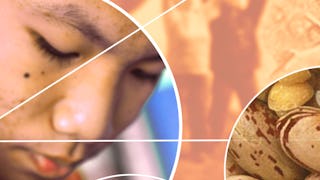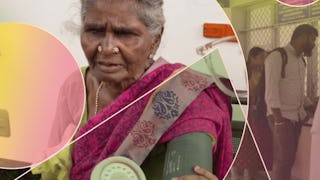Non-Alcoholic Fatty Liver Disease (NAFLD) is a global problem, affecting up to 25% of all individuals. The disease not only increases the risk of liver disease, but also of cardiovascular disease and liver cancer.

Enjoy unlimited growth with a year of Coursera Plus for $199 (regularly $399). Save now.

Non-Alcoholic Fatty Liver Disease – The Essentials


Instructors: Nicolai Jacob Wewer Albrechtsen
9,771 already enrolled
Included with
(137 reviews)
Recommended experience
What you'll learn
1) Physiology of the liver and pathophysiological aspects of NAFLD
2) Diagnostics aspects of NAFLD
3) Treatment of NAFLD
4) Complications of NAFLD
Skills you'll gain
- Patient Treatment
- Medical Science and Research
- Chronic Diseases
- Laboratory Testing
- Endocrinology
- Pathology
- Clinical Nutrition
- Internal Medicine
- Nutrition and Diet
- Patient Evaluation
- Anatomy
- Precision Medicine
- Treatment Planning
- Biology
- Medical Ultrasonography
- Physiology
- Diagnostic Tests
- Pharmacology
- Epidemiology
- Biochemistry
Details to know

Add to your LinkedIn profile
6 assignments
See how employees at top companies are mastering in-demand skills

There are 6 modules in this course
The liver contributes to overall body homeostasis through several biochemical processes and without these functions we cannot maintain life. In the first lectures, Professor Jens Juul Holst will discuss the physiology of the human liver focusing on biochemical concepts as gluconeogenesis, glycogenolysis, lipid and amino acid metabolism. The videos will also cover how external hormonal systems such as pancreatic islets regulate liver metabolism. After completing module 1 you will have a broad and basic understanding of the physiology and pathophysiology of the liver. In the subsequent modules, we will build on top of module 1 by exploring fatty liver disease.
What's included
5 videos2 readings1 assignment1 discussion prompt
What causes non-alcoholic fatty liver disease? This is the core question of module 2. We will kickstart this module by reviewing epidemiological data on non-alcoholic fatty liver disease by professor Peter Jepsen. In the second half, professor Bente Kiens will dig into which nutrients that may drive fat infiltration of the liver. The diversity in the risk of developing non-alcoholic fatty liver disease and NASH will be discussed from a genetic approach by doctor Stefan Stender.
What's included
3 videos5 readings1 assignment1 discussion prompt
Professor Henning Grønbæk will commence module 3 with an overview of the multiple hit hypothesis followed by Hendrik Vilstrup who will describe how the liver function is affected in patients with NAFLD.
What's included
3 videos2 readings1 assignment1 discussion prompt
Professors Flemming Bendtsen and Lise Lotte Gluud will discuss how to diagnose non-alcoholic fatty liver disease with or without fibrosis by non-invasive tests and describe when additional tests including histological assessment is required. Professor Mogens Vyberg will take us into the world of liver diagnostic by zooming in on the histological traits of liver tissue from patients with non-alcoholic fatty liver disease. The module will be concluded by perspectives on how ‘omics’ technologies such as protemics may contribute to identification of novel biomarkers in a lecture by Associate Professor Nicolai J. Wewer Albrechtsen and an interview with Professor Matthias Mann.
What's included
10 videos3 readings1 assignment1 discussion prompt
Exercise is an important tool to improve the health of your liver. How exercise affect your liver will be introduced by Professor Bente Klarlund Pedersen and Associate Professor Nicolai J. Wewer Albrechtsen. Personal Trainer Samantha Mølgaard will give a practical guide on how to ‘exercise to improve your liver’. The evidence concerning the pharmacological treatment of non-alcoholic fatty liver disease is growing rapidly. Professor Guruprasad Aithal will introduce us to the current evidence and provide an insight into future drugs developed specifically for the treatment of non-alcoholic fatty liver disease.
What's included
4 videos1 reading1 assignment1 discussion prompt
In the final module, Professor Henning Grønbæk will discuss the close relation between non-alcoholic fatty liver disease and type 2 diabetes. Furthermore, why it is important to screen individuals with type 2 diabetes for non-alcoholic fatty liver disease. Professor Jonel Trebicka will discuss the management of patients who have developed cirrhosis due to non-alcoholic fatty liver disease. Finally, Professor Lise lotte Gluud and Associate Professor Nicolai J. Wewer Albrechtsen will revisit some general aspects of non-alcoholic fatty liver disease and discuss its future aspects.
What's included
4 videos3 readings1 assignment1 discussion prompt
Instructors


Offered by
Explore more from Research
 Status: Preview
Status: PreviewUniversity of Copenhagen
 Status: Free Trial
Status: Free TrialImperial College London
 Status: Free
Status: FreeUniversity of Copenhagen
 Status: Free Trial
Status: Free TrialNational Academy of Sports Medicine
Why people choose Coursera for their career




Learner reviews
137 reviews
- 5 stars
84.67%
- 4 stars
11.67%
- 3 stars
3.64%
- 2 stars
0%
- 1 star
0%
Showing 3 of 137
Reviewed on Mar 9, 2021
The course material and the discussions are very professional and the matter in the course really helps a person progress in the study of NAFLD
Reviewed on Jan 4, 2023
This is the helpful course with many necessary information for everyone to widen the understanding about Non-Alcoholic Fatty Liver Disease. Thank you so much!
Reviewed on Sep 12, 2021
A great course to learn about physiology and treatments of NAFLD.

Open new doors with Coursera Plus
Unlimited access to 10,000+ world-class courses, hands-on projects, and job-ready certificate programs - all included in your subscription
Advance your career with an online degree
Earn a degree from world-class universities - 100% online
Join over 3,400 global companies that choose Coursera for Business
Upskill your employees to excel in the digital economy
Frequently asked questions
To access the course materials, assignments and to earn a Certificate, you will need to purchase the Certificate experience when you enroll in a course. You can try a Free Trial instead, or apply for Financial Aid. The course may offer 'Full Course, No Certificate' instead. This option lets you see all course materials, submit required assessments, and get a final grade. This also means that you will not be able to purchase a Certificate experience.
When you purchase a Certificate you get access to all course materials, including graded assignments. Upon completing the course, your electronic Certificate will be added to your Accomplishments page - from there, you can print your Certificate or add it to your LinkedIn profile.
Yes. In select learning programs, you can apply for financial aid or a scholarship if you can’t afford the enrollment fee. If fin aid or scholarship is available for your learning program selection, you’ll find a link to apply on the description page.
More questions
Financial aid available,

